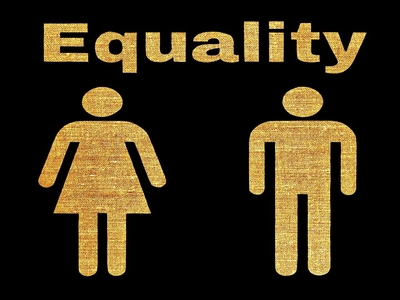“Equality” and “Power” — What Makes Us Different?
1. In the way Thais in general and your lady in particular, greet others. If you’ve spent any time at all in Thailand, you’ll no doubt have noticed the “wai” – the charming Thai custom of greeting people by placing your hands in a palm-touching, almost prayer-like gesture close to your chest, accompanied by a nod or bow of the head. If you’ve never been in Thailand before, you’ll see that gesture everywhere you go. But what might escape most. Western eyes are the subtle variations found to be found in that simple gesture. Pay close attention, and you’ll notice that when greeting some people the hands are moved closer to the head – even up as far as the forehead – and the nods or bows are deeper. And in greeting others, the hands are moved closer to the center of the body, and only the slightest nod accompanies the gesture. Those are physical clues to the other person’s status in the hierarchy. The higher the hands toward the head, and the deeper the nod, the more status and respect is being shown to the person being greeted. In greeting a person of more equal status, the hands are closer to the chest. And even more interestingly, the “wai” of someone of lower status than you need not always be returned!
Although you’ll be given the benefit of the doubt if you’re new to Thailand or Thai culture, as your relationship deepens with your Thai lady, she’ll begin to expect you to understand these subtleties. When you meet people who are important (and therefore of higher status) to her, like her boss, her parents, her priest – even authority figures like policemen and government officials – she will expect you to show the same respect she does, and will become embarrassed – even offended — if you don’t. If her uncle is an alcoholic; if her brother is a degenerate gambler; if the policeman is corrupt – you, as a Westerner, feel justified in showing your disrespect. After all, to you respect is earned.
2. In socializing, the positions people assume as they seat themselves. If you visit your Thai lady’s family in their home, for example, pay particular attention to how people arrange themselves. Notice that older family members (mother, dad, grandma, grandpa, elderly auntie or uncle) take the chairs. Children (even adult children) will often seat themselves on the floor, keeping their heads lower than those of the older, higher-status relatives to show respect.
3. In decision-making, the avoidance of stating a preference. Just like in the last article, the most obvious way this power dimension will show up is in the shy way she’ll say, “It’s up to you” to whatever opinion you ask her to voice. After all, you have the higher status, more power – therefore the decision must be yours and it would be “out of place” or bad manners for her to make it or presume to make it for you – even if the decision concerns her directly.
In other words, her quiet, deferential, and shy behavior is actually deference in reaction to your higher status and position.
4. In taking initiative to change the circumstances of life. Should you make any suggestions that your Thai lady friend take steps to improve her education, take classes for her own amusement, look for a better job, or take any initiative at all to change the circumstances of her life, she may resist – thinking that doing so is acting outside the boundaries of her status. Many Western men who have taken their Thai brides to live outside Thailand have been mystified at what seems like “laziness” – it’s actually the deep culture shock of being asked to take power over her own life that seems to paralyze her!
5. In the way the Thai people talk about their king, their government, and other people of high position. You may think the Thai deference and the respect they pay to high government officials and religious leaders are irrational – and to you it probably is. As an example, remember how the U.S. culture treated its president for being unfaithful to his wife? He was mocked, ridiculed, and publicly humiliated with lurid descriptions of his private parts. In
Thailand, such behavior of an important official would not only be politely ignored – it would be expected. Nobody would openly express such disrespect for such an important man – it would be considered extremely bad manners.
6. In the ways she (or her family) brag about status. Face it, when you marry a Thai woman, her status and that of her family might rise in the eyes of their friends and neighbors. After all, as a “farang,” you have that “Hollywood mystique,” whether you think you deserve it ornot! Her mother might brag about the new stove you bought for their apartment, telling everybody how much you paid for it. Her father might boast of the high cost of the jewelry you gave his unworthy daughter. And she might even show off the new watch, computer, or other gift, telling her friends, “He spends so much money on me.” Rather than being embarrassed at the flaunting of the value of those gifts, realize it’s normal and natural in
Thai culture to make a show of status and power and enjoy their symbols.
| In an “Equal” Culture like Yours… | In a “Power” Culture like Hers… |
| People are basically equal, and expect to be treated equally | People are basically unequal, and expect to be treated according to their status |
| Since people are basically equal, it’s important to act in ways that reinforce the notion of equality | Since people are basically unequal, it’s important to act in ways that reinforce your position in the hierarchy |
| Everybody should have equal rights | The powerful should have privileges and “more” rights than the powerless |
| People can “rise above” their station through hard work and achievement | People accept their station in life, and nothing they do can change it |
| Your personal power and influence are based on your achievements, your expertise, your formal position, and your ability to give rewards | Her personal power and influence are determined by her family, her friends, her charisma, and her/their ability to use force |
| It is “bad manners” to show off your personal power and status – it’s important to look less powerful than you are | It is expected that she will show off her personal power and status – it’s important to look as powerful as she can |
| Decision-making is a “democratic” process | Decision-making is an “authoritarian” process |
| The way to change an unpopular system is to change the rules, through conversation and negotiation (evolution) | The way to change an unpopular system is by changing the people at the top (revolution) |
| Parents treat children as equals, and children treat parents as equal in your culture | In Thailand, parents teach children obedience, and children treat their parents with respect, even into adulthood |
| Your teachers expect you to take initiative in school – debate, discussion, and “arguing” is encouraged | Her teachers expect to take all the initiative in school – debate, discussion, and “arguing” are forbidden |
| Power is decentralized in your culture, held by many people | Power is centralized in the hands of a few people in her culture |
| Your subordinates expect to be consulted about decisions | Her subordinates expect to be told what to do |
| Your ideal boss is a resourceful “democrat” | Her ideal boss is a benevolent autocrat or “good father” |
| The use of power should be “legitimate” and it is always subject to evaluation of good or evil | Might makes right: whoever holds the power is right and good |
| Prevailing religions and philosophical systems in your culture stress | Prevailing religions and philosophical systems in Prevailing religions and |
| equality | philosophical systems in Thailand stress hierarchy and stratification |
| The political spectrum in your culture has a strong center and weak right and left wings | The political spectrum in Thailand has a weak center and strong right and left wings |
What to do When “Equality” and “Power” Collide
It may be tempting to take advantage of the power you hold “over” your Thai partner. Who wouldn’t want to be treated with such deference, such obedience, such service? But beware. Part of this “power dynamic” is the Thai tendency to have a “long fuse” and an even longer memory. Her cultural upbringing will drive her to tolerate your bad behavior only so long – until the only way to resolve it will not be through conversation or negotiation, but through “replacing the person at the top” – YOU.
If you can be patient, understanding, and flexible, you can gently introduce these key cultural differences and discuss them with your Thai partner, rather than argue about who is right and who is wrong. Part of the joy of any relationship is exploring your differences – rather than just sharing what you already have in common. Learn from her the subtleties of showing respect – and teach her how to feel comfortable “sharing” power with you by making her know you won’t be angry with her for assuming her opinions, wants or desires are as important in the relationship as yours.
We are a matchmaking company that has built an internationally respected reputation for providing the highest quality dating services for Western guys seeking a long-term, committed relationship with a Thai woman as well as Visa Assistance.
We also host Dating Events where you can meet single, lovely and trustworthy Thai ladies who are looking for genuine relationship. Interested to know what we do? Send us a message and we will be happy to chat.









